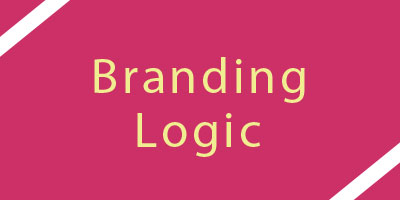Branding Life Insurance
... The combi-names ride many risks. As business grows or runs into rough weather some of the Insurance partnerships can be expected to change out of relevance to their name..... Brand-ability potential is about Brand Equity of a name when it is new. It refers to the sound, size and suitability of the name. In essence, brand equity of a yet-to-be-launched brand is essentially valued by its potential to be able to absorb values that would be built into it.
.........................................
Private insurance companies in India are having troubles with their names. Recently, Allianz Bajaj is re-named as Bajaj Allianz. OM Kotak Mahindra is now just Kotak. Following a faulty pattern most of them have ignored the fundamental principles of naming a brand. Evidently, the partnership brands appear to be proving more detrimental. While not easily yielding to branding efforts they seem to cause strain internally also.
The names are stuck now and many of these companies have the tough job of branding inappropriate names. Almost all of them have already cast some set of impressions. As the competition intensifies the noise from the crowd would be loud with all trying to mold better impressions in an increasingly hard to drive market. Excluding the yet-to-start-off Sahara and the Reliance (not in the list yet) there are 12 of them in all each trying to gain grounds in their selected start-up regions and cautiously planning to extend to other regions - - nurturing aspirations to cover the nation in time, as early as possible. There are couple of other consortiums too wanting to enter but are yet talking out partnerships. Recently, Vijaya Bank announced about getting ready to join the fight with a combine including PNB, Berger paints and Principal of the US. Finally, the companies in competition could creep up to18 -- rather too many to be easy out there.
In India, as typical of developing countries, Insurance is a case of mature business in an immature market. A situation indicative of immense latent potential. The situation also means that winning / sustaining in Insurance happens to be squarely a function of good marketing. Aptly said, branding well. Very much so, under the current competition situation.
Branding insurance has certain unique aspects. Firstly, insurance companies seem to have had no choice for the brand name. I contend, all had an opportunity to work out a very potential name. But, the names sing a 'couldn't-do-a-thing-about-it' -- note. I tend to wonder, if it was considered at all? None, except Aviva, has figured out the anomaly and the scope to gain a lasting marketing advantage - - by just the name.
Perhaps these companies did not realize the imperatives of branding in the changed market scenario. Insurance will now be sold more like any FMCG product needing drastically different marketing approach and tactics. And, a well thought out Brand name would have surely served as a primary competitive advantage.
Old, stately and big, that's insurance. Traditionally insurance companies have had long names, doubling as the brand name as well. Now with the international partnerships the names of insurance companies in India have just grown longer. They appear to have just about happened. The effort has been only to put the names of the partners together, try trim it or when difficult to combine, settle for just the name of one (dominant?) partner. Luckily, most of the foreign companies have had abbreviated their long names long time back. May be that kept the trap - - from these companies thinking out more appropriate names. On the Brand names, I believe, the sub-conscious belief that Life Insurance' never had and can't have a brand name other than the name of the company is so strong that it possibly never occurred to these companies to think about having a separate brand name. The question, why not - - arises now out of the awkward names the companies have. Incongruity is apparent.
Think about it again. Brand names evolve. All insurance companies have brand names. The abridged version of the company names evolved over time, because of the difficult-to-tongue lengthy names these companies were invariably incorporated with. The default brand name of Life Insurance Corporation of India is LIC. Similarly, AIG, AMP, Metlife are all default brand names.
Among the default brand names in India LIC happens to be most familiar owing to being a lone player for over 50 years. In comparison with the competing default brand names it wins over every other brand except of course Aviva. I am relating with the potential of the names in being able to deliver marketing (promotion) advantages in course of time. In defending its slowly but surely eroding market share the first thing LIC should ideally do is to herald being marketing savvy by formally projecting the letters L I C as its brand name within a classy design and use it and leverage on that as such.
The Insurance brand names in India are a double fault. One, this typical partnership even in names (company and brand) or even the adoption of the brand name of a minor (for the time being?) foreign partner can turn out to be a real constraint in sustaining the spirit of active participation of the partners in the management. And two, most of the names have poor brand-ability quotient. For sure, if ones with relatively better names keep branding right. There is an obvious risk of suppression / enforcement by the partner who has appropriated the business by the name irrespective of the size of share holding. In the worse case of having to ride alone or with a different partner, there is a risk of having to change the name to be relevant.
The contentions in this piece are two. Radical and more important one is that insurance companies in India could have thought of brand names totally dissociating from the name of the company. And, two which is partnership related and strategic to India is that the name of the company should have been India specific, name of only the Indian partner or otherwise unique instead of the twin-names or even foreign partner's name. Apart from the marketing and brand-ability advantages such names would have remained immune from becoming irrelevant from sure to happen changes in shareholding pattern of the company. The combi-names ride many risks. As business grows or runs into rough weather some of the Insurance partnerships can be expected to change out of relevance to their name.
In terms of larger strategic aspects concerning India these twin-names drastically reduce the chances of having strong global Insurance brands from India. Those with foreign partner's name tagged along can only hope to (rather try to) build a brand in India. Since the other half of their names happen to be familiar brands in many countries across the globe these brands have no chance of becoming global. Global brands appropriating wealth from many countries for the good of their respective countries is an economic phenomenon that is decidedly and progressively evolving. The situation demands that the policy makers realize this as they put out stipulations for foreign participations. LIC has already set up companies in Nepal and Sri Lanka with absolutely right names and if it pursues its evolving international operations with determination it stands a good chance of becoming a global Indian brand. In course of time Sahara, Reliance, SBI, or any new entrant with a non-restrictive name can aspire to become a global Insurance brand.
Some loud thinking about the sustainability of these combi-names. As we are to our customers, we shall remain partners for life. That is the apparent intent the names convey. Good, but intentions and real situations hardly match. Examples explain better. Think about the predicament of Kinetic now, with Honda as an active competitor. In course of time Suzuki will not only become a competitor for TVS motors but may also tie up an alliance with another competitor. Is insurance business any different than automobile business in this context? Does IRDA say, you are married once -- you are married forever? Are partnerships in Insurance sure enough to bet a brand name on? These collaborations in India, irrespective of the segment seem to weaken more on calls for money. In the Insurance business the calls could be for more and more often. ICICIpru's capital base has already surged to Rs.625/- crores. Further, in a business that has huge potential, tough competition and hard tasks, conflicts can surface quite too often. Adopting name of the company for the brand name is by itself risky. Adopting a partnership combine name for a brand name can only be considered a classic branding mistake.
The risk of suppression is already evident in some of the names. How should the joint venture among MetLife International Holdings Inc., The Jammu and Kashmir Bank, M. Pallonji and Co Private Limited and other private investors be named? Difficult to combine, so settle for just metlife. Or, is it a clever strategy for gaining dominant control by offering the brand name -- with just 26% equity? (Ironically, even the link to metlife in irdaindia.org takes you to Metlife, Newyork - - as on date). Similarly, with Aviva as the Brand name daburs's control over the business in spite of 74% equity is powerless. Far whatever reason if Dabur has to run it alone or with some other partner they have to think of a new brand name. As bad as starting anew. The recent name corrections, I presume, are the result of such conflicts. One big risk these combi-names pose is the possible negative rub-offs from the other half of the brand names arising from their operations elsewhere. There were couple of news that sounded discomfort. Some months back AIG Mauritus went to the court to settle a dispute with tatas. Though this involved two different entities in a different business segment, the article was clubbed with articles on Insurance in India in couple of business portals. Even AMP Sanmar had to issue a statement to declare that AMP's restructuring of its operations elsewhere will have no implications on its collaboration here.
In that sense, SBI Life, without Cardiff happens to be named fine in respect of the partnership related risks. In all, three types of names have evolved. They are: With only Indian partner's name (Very keen, would strive to hold on to at least 51% of equity.), with only foreign partner's name (may sell out to the foreign partner. Other way round it speaks of the keenness and ambitions of the foreign partner) and with both the partners' names (mutually keen).
Or, does a big foreign brand really deliver greater marketing advantage? Not really. With so many around the marketing advantage on that count is rather diluted. Chances are, it could prove to be a disadvantage. Swadeshi as a concept is quite potential to turn crucial any day. It is all possible that an all-Indian company, not by just name, can lead the industry. Swdeshi concept works exceptionally when swadeshi performs. Reliance can, for sure, with strong Indian partners and public holdings. One is enough, yet if Sahara also gets set to fight and, perform, the foreign names may mean nothing. It could be worse. Foreign names could prove negative against excellent performance from all-Indian companies. Though it is not time yet to make the list, right now, world's no. one is almost last in the list.
In the marketing context, particularly under the current competition scenario, except Aviva all the names have poor brand-ability potential. Brand-ability potential is about Brand Equity of a name when it is new. It refers to the sound, size and suitability of the name. In essence, brand equity of a yet-to-be-launched brand is essentially valued by its potential to be able to absorb values that would be built into it. By chance (Aviva is picked out from Aviv Plc., the other partner) and some thought (using it alone) Aviva has got it right. Strictly, None, except Aviva, confirm to proven principles of naming a brand. Aviva sounds interesting, different and appealing and therefore stands out. It doesn't even matter what it means. It is virgin and independent values can be built into it. In relative sense, SBI Life also sounds improper as a brand name. Probably, because SBI for all the massive and diversified financial businesses they do is perceived as just a B A N K, a state bank. Reliance if launched can do well with the brand name Reliance - - for the core perceptions of the Reliance Brand are big, great, reliable and it is un-stuck with any of the business it is related with. After all, what's in a Name? Nothing?? The Insurance names in India should prove something.
Or, are these combi-names all right? Don't they draw some ready brand equity from the names? Yes, but is that so much critical to override the disadvantages? Actually, see-here lines, explaining the partnership as seen in the advertisements would achieve that as effectively -- over time.
May be Insurance companies plan to build brands out of their products. Would that work? Some brands have come up already, one or two with the popular words Dhan and Shree. In Insurance, products increase in no time. With about a hundred plus (may be more) products already, branding products can only result in diluting the main brand. Insurance products are plans and ideally they are not named as brands.
As you start branding, a new one particularly, the first thing to think about is the name. There is a wholesome marketing work and future that can be bet on it. Why can't Insurance companies have a brand name other than the name of the company? Any other name as good as Aviva should work. The fact is that with a name like Aviva it is surely much, much easier to build-in values. As a basic principle it is wrong to ride multiple risks on a brand name.
Partnerships in Insurance haven't spared the logos either. Twin names and double logos. It is a case of one mistake leading to another. The strain on the part of the companies and the ad agencies in handling double logos is rather evident. Some have grouped the names and logos within a frame. Some have solved the problem lately by using just one of the two. And, only HDFC has come out with a new logo which looks more of a de-branding job. The stout L' and the skeleton of I' lacks the maturity HDFC stands for.
And think of the slogans. Theory of probability seems to work perfectly right. Aviva got its name right and a slogan that's unbeatable. 'Kal par control'. Well, that speaks about the collective marketing maturity at Aviva. That's about identity and lack of it. Slogans of all the other companies sound silly in comparison with 'Kal Par Control'. Quite a few of them don't have one yet. It does make sense to take time to think out than to throw out a de-brander. With the best out there already it's going to be tough job beating it out.
Does that mean insurance business can have a brand name other than the name of company? Does that mean one may think up names like Shanthi, moksha et al?
May be, it is too late to think out altogether different brand names now. May be, it is possible. That is to say, yes but very, very tough. However, I expect some more corrections to happen. That's good news for the media and their agents. However, yet-to-start off ones surely have an opportunity to come out with very competitive brand names. Vijaya Bank and party should seriously think and work it out.
19 April 2004
Copyright: Adve Srinivasa Bhat, India.










